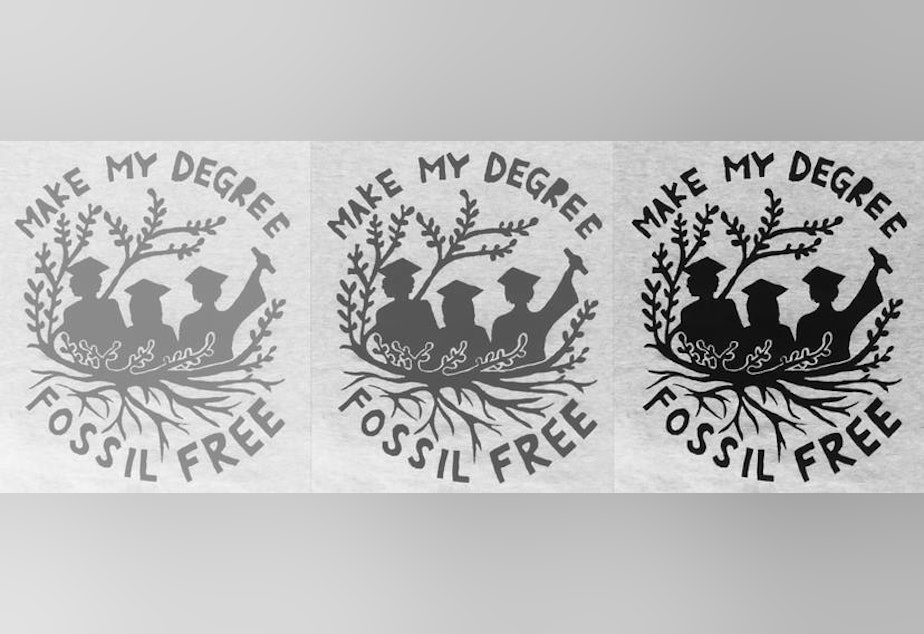Seattle University said to be first in state to divest from fossil fuels

After a six-year campaign by student activists, Seattle University announced Wednesday it is selling off its investments in fossil fuels.
A vote by the university’s board of trustees on Sept. 13 kicked off a five-year process to rid the school’s $230 million endowment of firms that own coal, oil or natural gas reserves.
The school has an intermediate deadline of jettisoning half its fossil fuel holdings in the next two years.
“This is a moral imperative,” university president Father Stephen Sundborg said Wednesday. “Climate change is just so, so ominous and so developing and growing all the time.”
“If we don't take the action that we do now, it has disastrous consequences in the longer term, particularly for our students and for the future,” Sundborg said.
He credited students activists for "galvanizing" the movement.
"It definitely does feel like a victory, but we definitely want to fight for the full divestment," said incoming senior Erin Alberts with the group Sustainable Student Action.
The activists wanted their school to divest from companies that transport or process dirty fuels, not just the firms that own the energy reserves.
Alberts said activists don’t know how much the school’s investments in such companies might be.
“It's a private school, so the financial records are not public,” she said. “The university is not eager to share those companies with us.”
Seattle University is believed to be the first college in Washington to decide to divest from all types of fossil fuels. The University of Washington voted to sell off its holdings in coal, but not other sources of climate-harming pollution, in 2015.
“With this being the first college in the state to divest fully and the first Jesuit school out of the 28 Jesuit schools, it could make a big impact if we help inspire other schools,” Alberts said.
Sundborg said the board of trustees recognized the risk that selling off some $13.6 million in assets might hurt the endowment’s financial returns.
“They debated the economic and the moral, and they came off on the side of, ‘we need to do this from a moral perspective,’” he said.
Divestment activists argue that investing in fossil fuels is not just immoral, it is increasingly risky financially as the world charts a path, albeit haltingly, away from their use.
Seattle activists have also targeted much larger endowments controlled locally: the City of Seattle’s employee pension fund and the Bill and Melinda Gates Foundation endowment.
The city’s pension fund managers last year declined activists’ and then-Mayor Ed Murray’s suggestion to divest from fossil fuels, saying they were legally bound to only consider the financial performance of the portfolio they managed.
Microsoft and Bill and Melinda Gates Foundation co-founder Bill Gates told the Atlantic in 2015 that divestment was a “false solution” to the problem of climate change. At the time, his foundation was estimated to have $1.4 billion invested in fossil fuel companies.
Yet less than a year later, the foundation had sold off 80 percent of its fossil fuel stocks, including its entire holdings in energy giants BP and Exxon Mobil.
Critics of divestment campaigns say they do little to dampen the stock prices or clout of the companies they target and that engaging in activism as shareholders can more effectively change corporate behavior.




